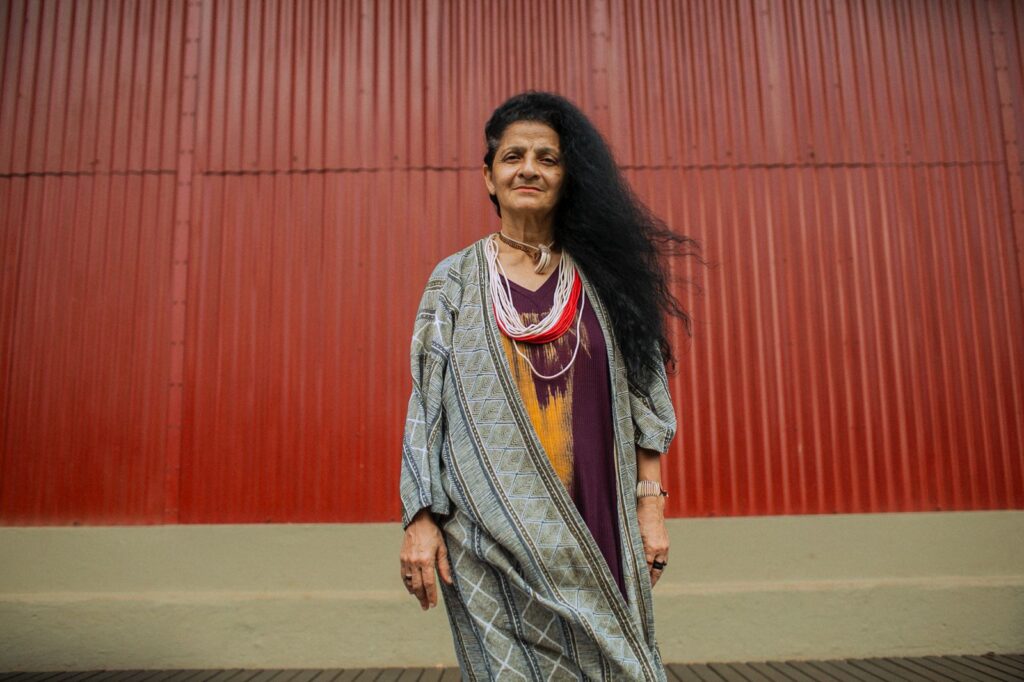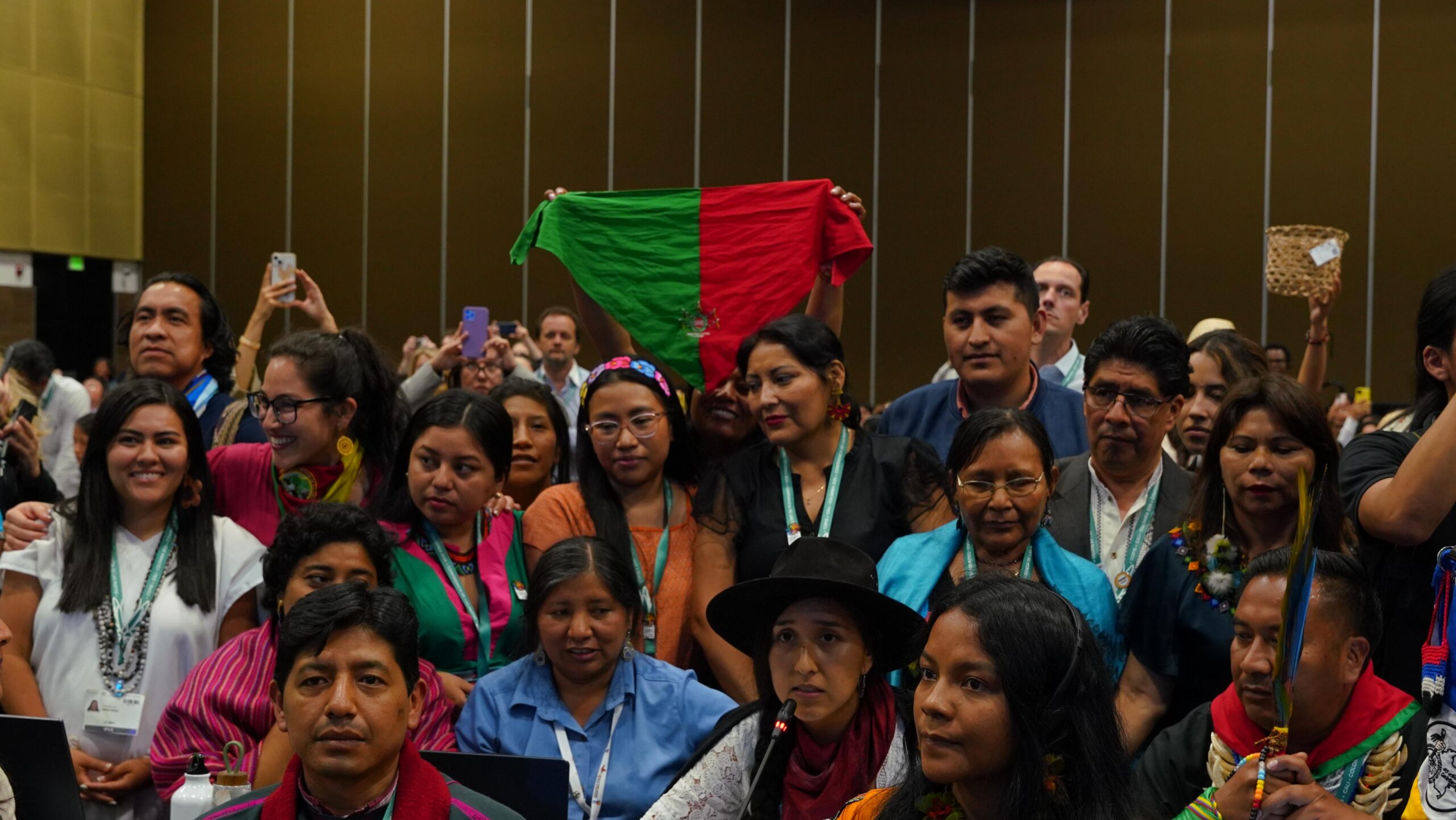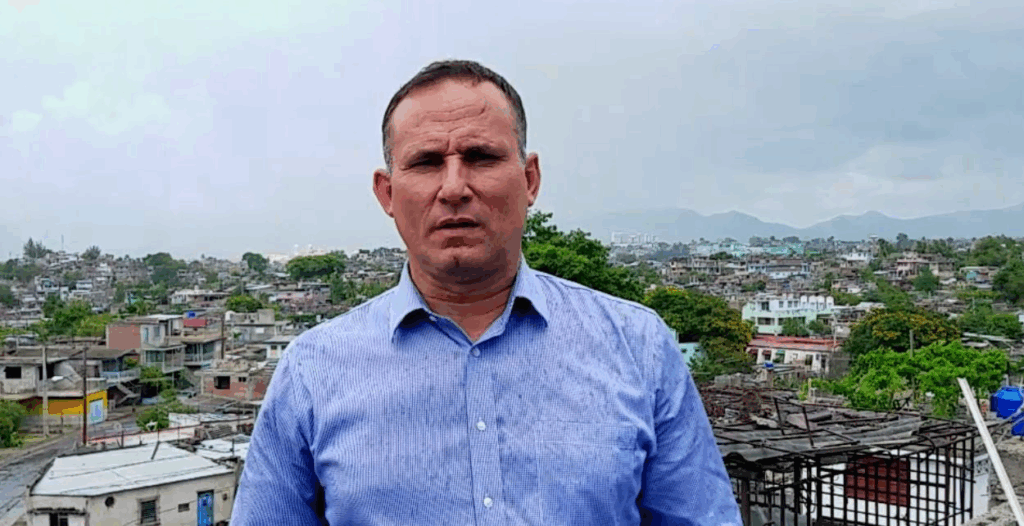The COP16 Biodiversity conference in Cali, Colombia fizzled out on Saturday with many delegates leaving the country before resolving key issues.
The summit stopped short of delivering its main goal of securing funding for ambitious conservation commitments made at the previous summit, COP15, with critics blaming wealthy nations and corporate lobbying.
But some consensus was reached, including a new body representing Indigenous peoples in conservation efforts and a fund designed to see large firms contribute a portion of their revenues to protecting nature.
How did the conference end?
The summit was meant to finish on Friday, November 1, but dragged on into the early hours of Saturday as delegates failed to reach an agreement on key issues.
After many nations’ delegates left to catch flights home, the conference was unable to reach quorum and was forced to end, causing confusion among some attendees.
But COP16 has not formally reached a consensus and delegates are expected to meet next year at an interim summit in Bangkok to hash out unresolved issues.
What was agreed?
One of the key outcomes of the conference was the creation of a subsidiary body that will allow Indigenous peoples to be represented and consulted on future conservation matters.
Afro-descendant communities were also recognized within the convention for the first time.
These agreements were hailed as “historic” by Susana Muhamad, COP16 President and Colombia’s Environment and Sustainable Development Minister.
“The value of the traditional knowledge of Indigenous, Afro-descendant and local communities is recognised with this decision and a historic debt has been settled,” said Muhamad on X.
The Minister shared a video showing representatives of these communities celebrating the announcement.
Estefanía Gonzalez, Deputy Campaigns Director at Greenpeace Andino, also praised these outcomes as “hugely important advances during long and challenging negotiations.”
Another key result of the conference was the agreement on a strategy to raise money for conservation through contributions from private companies.
Specifically, some firms that profit from genetic data from nature will be expected to pay 0.1% of revenues or 1% of profits into a nature protection fund.
Glenn Walker, Head of Nature Program at Greenpeace Australia Pacific, told Latin America Reports that the move was positive but did not go far enough.
“0.1% of corporate revenue from nature is only up to $1 billion USD a year. That’s too low, but it’s heading in the right direction,” said Walker.
He also hailed the fact that 50% of these funds will go towards Indigenous peoples and local communities.
“They are the ones who protect these genetic resources. And they are the ones who can do the most with this money. The era of smash and grab corporate profits from nature is ending,” he commented.
What remains unresolved?
Despite some agreement, the largest issue on the table at COP16 remains unresolved. Going into the summit, host country Colombia made it clear that the summit’s priority was securing funding for commitments made at COP15.
At the 2022 summit in Montreal, delegates from wealthy nations had committed to raising $20 billion in funding for conservation annually by 2025.
Other than the genetic data funding, which will be optional for firms, no financing commitments were made.
Neidinha Suruí, an activist and leader of the Uru-Eu-Wau-Wau Indigenous People in the Brazilian Amazon, criticized the outcome of COP16.

“The COP ended badly, with the rich countries… not making any commitment to have a fund to maintain biodiversity, which is a clear demonstration that they are not concerned about the planet,” she told Latin America Reports.
Suruí was also unimpressed by the summit’s commitments to Indigenous representation.
“The creation of a consultative body is a step forward but without a fund to give resources to native peoples to maintain actions to protect their territories, it will have little effect,” she commented.
The Indigenous leader called for a “permanent fund to recover what has been lost,” describing the compensation from genetic data as “insufficient.”
What now?
With the summit closed, delegates must wait a year to rehash issues around biodiversity at the UN level.
But later this month, countries will send delegates to Azerbaijan to take part in the higher profile COP29 climate conference.
According to An Lambrechts, Head of Greenpeace’s COP16 delegation, the conference in Cali will have a direct bearing on the upcoming summit. She views the failure to establish a fund for conservation as damaging to relations between nations.
“With one week to go until COP29 begins, the non-decision on a fund damages trust between Global South and North countries,” said Lambrechts.
As nations look set to continue bickering, the daily fight continues for those like Neidinha Suruí living on the frontlines of climate change and biodiversity loss.
Her WhatsApp status simply reads, “defending the forest.”










